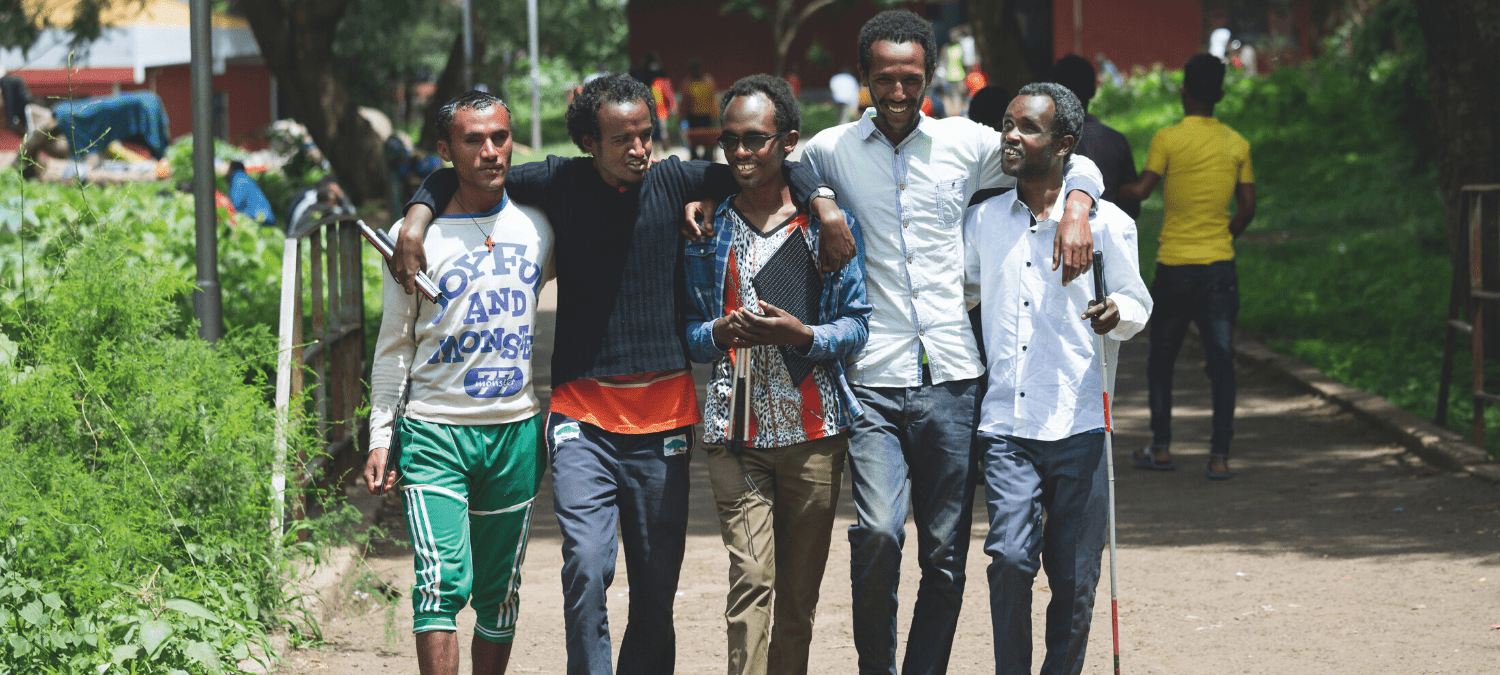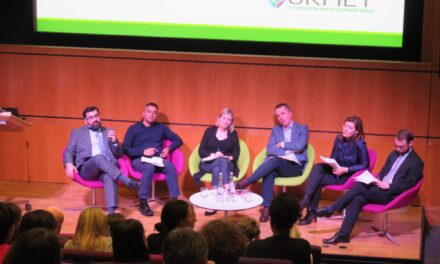This blog was written by Prof.Nidhi Singal, Faculty of Education and REAL Centre, University of Cambridge, and was originally published on the IIEP Learning Portal on 28 November 2019.
The Sustainable Development Goals with their commitment to ensuring all young people will have access to good quality primary and lower secondary education by 2030 have spearheaded an increased focus on children with disabilities. The SDGs explicit mention of persons with disabilities, across education and other goals have resulted in intense discussions on how to make these commitments a reality.
Across the globe, it is estimated that one-third of all out-of-school children at the primary level have a disability. Transition rates from primary to secondary education remain dismal. Limited available data on learning outcomes show that children with disabilities perform worse than their peers without disabilities, though being in school does have a positive impact on their learning, and one could argue well-being.
Something needs to be done!
However, what is it that needs doing, remains contentious. Based on recent empirical insights, I suggest six steps towards promoting inclusive quality education for all, with an emphasis on children with disabilities.
Include from the beginning.
Nearly a third of all children around the world enter primary school without the cognitive, communication, social and emotional skills needed to fulfil their potential. Approximately 155 million children, or 25% of all children under the age of five, are stunted due to chronic under-nutrition and illness. This, literally, stunts their capacity to grow, and learn – because nutritional deficiencies in early childhood can negatively affect physical capabilities, cognitive development, and the ability to learn later in life. In sub-Saharan Africa, the number of children under five affected by developmental disabilities has increased (between 1990 and 2016) by more than 70% to 14.7 million, since 2016, while other regions in the world have experienced a decline. The most marginalised children, particularly children with disabilities, face the greatest risks, and have by far the greatest likelihood to face hurdles in accessing services and support in early life.
Ensure teachers are well trained and supported.
Training teachers in adopting inclusive pedagogical strategies is critically important, but not enough. Teachers in many low- and middle-income countries are struggling with large class sizes, poor infrastructure, lack of teaching and learning materials and innumerable demands on their teaching time- therefore they need support. Specialist inclusion teachers have a critical role in enabling inclusion in mainstream classrooms, as they can provide practical advice to classroom teachers on educational inclusion strategies. Specialist teachers can be school or cluster-based, as evidenced in the use of itinerant specialist teachers for children with disabilities in Uganda and the Inclusive Education Resource Teachers in India. Evidence on the effectiveness of such models is mixed due to frequent shortages of these cadres, heavy workloads, distance the specialist teachers have to travel, lack of transportation and sometimes difficult relationships with mainstream classroom teachers. However, such support, if planned well, can foster collaboration and be an effective model for supporting inclusion.
Make available affordable and appropriate assistive technology.
Evidence indicates that an estimated 90% of people who would benefit from assistive technologies (AT) do not have access to them and there is a huge unmet need for such devices. Only 5-15% of assistive technology needs of children with disabilities are met. AT includes products that support communication, mobility, self-care, all of which help foster opportunities for participation in education, employment and social life. For example, today a pair of eyeglasses could correct the vision of 239 million children. Research shows that correcting myopia and poor vision with correctly prescribed glasses has a greater impact on academic performance than any other health intervention. The costs of ATs can be prohibitive, the least expensive hearing aid in northern Nigeria costs almost a month’s average salary, with added costs of maintaining and repairing devices. Simple approaches such as the School Eye Health model can help children participate and perform well in classrooms.
Empower parents as advocates.
To ensure participation in education for children with disabilities, their parents need to be regarded as ‘privileged partners’ and must be empowered to hold teachers and schools to account. In India, contrary to commonly held views, parents of children with disabilities greatly valued their child’s participation in education. They viewed it as an important way of countering challenges arising from the stigma associated with disabilities. Parents also play a central role in advocating for services for their child with disabilities and in holding systems accountable. They need to be viewed as enablers rather than barriers in promoting education of children with disabilities.
Strengthen current education systems.
Efforts towards inclusive education overlook the central question around what we are trying to include children into. Across the globe, while we have seen some progress, we remain confronted with statistics which indicate underperforming, overstretched and low-quality education systems. However, little attention has been paid to the quality of teaching and learning, experienced by children with disabilities. Instead, efforts remain focused on their assimilation into a mainstream system which is fraught with challenges. Debates around inclusive education for children with disabilities provide a real opportunity to bring about fundamental changes within broader education systems. By isolating it as a concern for a few, this is a missed chance. Educational reforms must take place at a systemic level not on a piece meal approach.
Invest in evidence which builds on local realities and priorities.
Much of what we know about the processes to support inclusion of children with disabilities is based on work undertaken in high-income education systems. These programmes (toolkits or otherwise), more often than necessary, and rather unsuccessfully, have been transferred to low-middle income countries. As we move forward, we need to invest in evidence building that draws on the contextual realities, know-how and strengths of the people and systems in low-middle income settings.
Nidhi Singal is Professor of Disability and Inclusive Education at the University of Cambridge. She has worked extensively with children and young people with disabilities in South Asia and Sub-Saharan Africa. Her research has examined the educational experiences of children with disabilities, the quality of teaching and learning in mainstream classrooms, and the impact of schooling. Throughout her career, she has worked closely with international donor and bilateral agencies and international non-governmental organisations assisting them in developing research projects, undertaking programme evaluations and providing evidence-based policy advice on a wide range of issues aimed at fulfilling commitments towards inclusive education. Nidhi is Chair of the British Association for priInternational and Comparative Education (BAICE). She also convenes the Cambridge Network for Disability and Education Research (CaNDER).
For a list publications please see: www.educ.cam.ac.uk/people/staff/singal/





